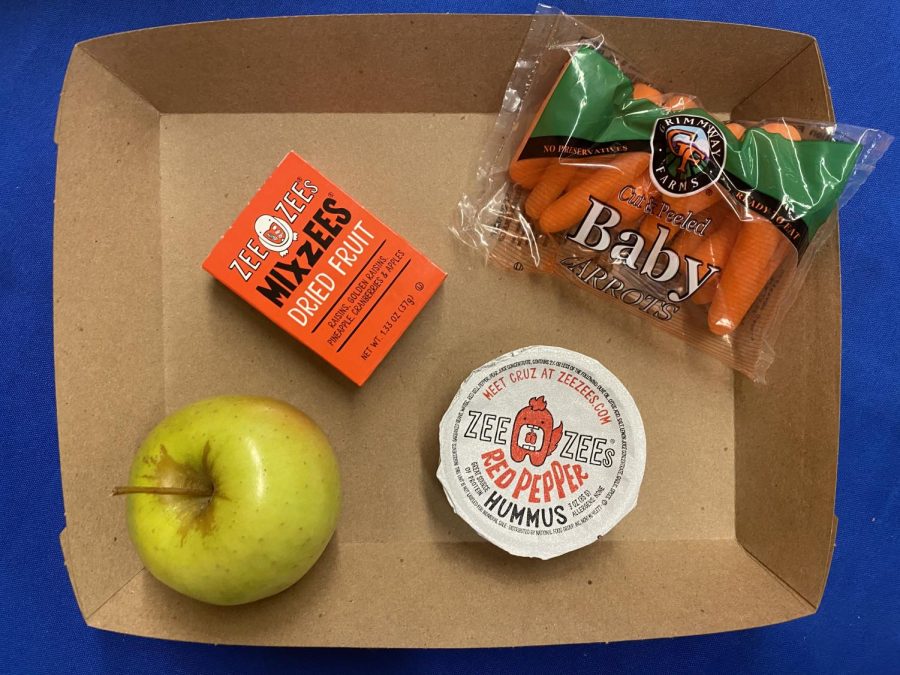Cafeteria lunches fail to include kosher options
A tray with carrots, hummus, dried fruit and an apple sits on a students plate. It contains the few kosher items a student might eat on an average day.
May 8, 2022
Waiting in line for 20 minutes only to get fat-free milk and a bag of apple slices for lunch probably would not be recommended by a nutritionist. When a person keeps kosher (unless they can live off apple slices), MCPS does not have the meals to accommodate them.
Kosher food, or food that conforms to Jewish dietary regulations, is eaten by Jewish people to respect religious tradition and customs. Common kosher practices include waiting three hours after eating meat before eating dairy and refraining from eating any pork or shellfish.
The official MCPS list of kosher items served in schools is outdated, having last been updated in September 2019. The website does not provide reliable information on food options, so students have no way of knowing if they can eat their food. This needs to change.
The one kosher meal listed on the MCPS website would be the veggie burger. Composed of a mere 250 calories with vaguely-labeled fries, the meal does not satisfy a student’s needs. Despite the MCPS Wellness Policy, MCPS does not provide students with common dietary restrictions access to nourishing meals, in many cases none at all.
The MCPS Wellness Policy was put into place in July 2006 and last revised in March 2012. The plan was put into place to allow students to recognize healthy portion sizes, combating poor eating choices. Why does MCPS refuse to take the next step to make sure the Wellness Policy is inclusive and addresses students’ dietary needs?
MCPS is piloting an information card system that would provide students in lunch lines with this information. Of the piloted items, roughly 53 percent are kosher, 50 percent are halal (foods permissible to Muslims), 30 percent are vegan and 60 percent are vegetarian. They need to implement this in all MCPS schools as soon as possible. Students who are kosher, vegan, vegetarian, halal, and gluten-free have the same right to comfortably eat their food.
Furthermore, these cards would provide nutritional information to make food more accessible for those with allergies and start the next school year with increased transparency about their food choices.
In addition to food cards, MCPS should update its website so parents and students alike have easily accessible nutritional information. Readily available information about school lunches would help keep people informed and aligned with their food restrictions, giving them the energy to get through the day.
Some students might say the County does not have enough funds to provide kosher meals because kosher foods require more money to produce than non-kosher food. However, considering kosher chicken is on average less expensive than pork, which the county has readily available, the benefits far outweigh the cost.
Students with dietary restrictions not receiving the same accessible experience with food selection means that MCPS is not accommodating all students. MCPS has a responsibility to change this fact.


